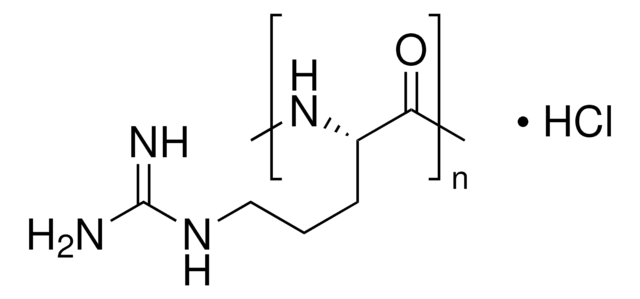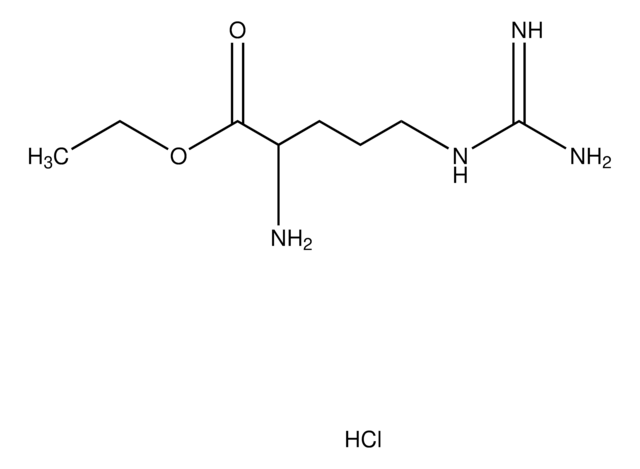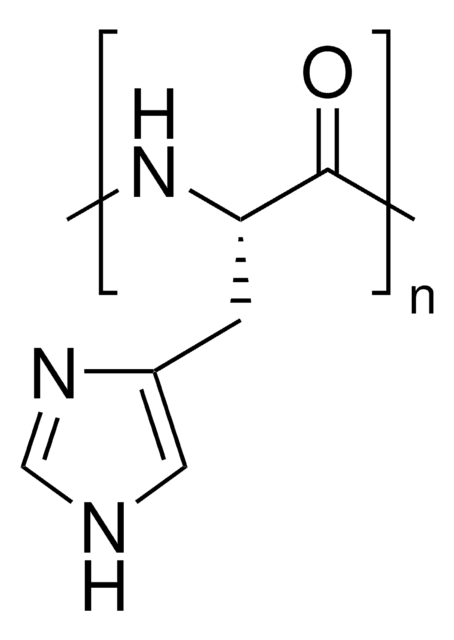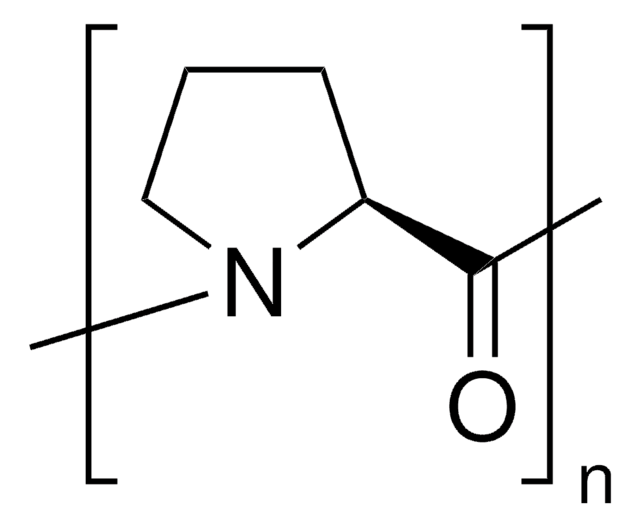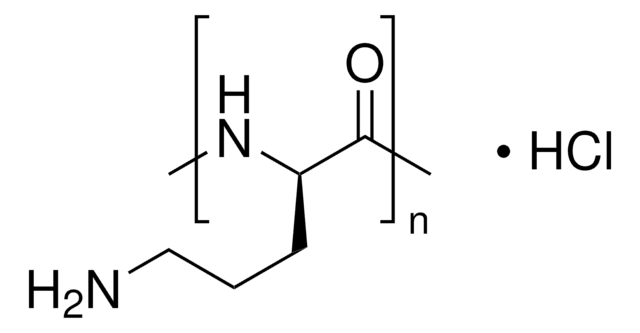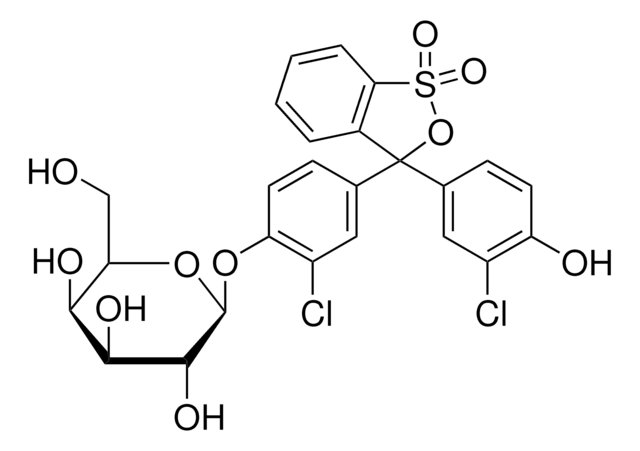P7762
Poly-L-arginine hydrochloride
mol wt 15,000-70,000
Synonym(s):
L-Arginine homopolymer hydrochloride
About This Item
Recommended Products
form
powder
Quality Level
mol wt
15,000-70,000
color
white to off-white
application(s)
cell analysis
storage temp.
−20°C
SMILES string
Cl.NC(CCCNC(N)=N)C(O)=O
InChI
1S/C18H38N12O4.ClH/c19-10(4-1-7-26-16(20)21)13(31)29-11(5-2-8-27-17(22)23)14(32)30-12(15(33)34)6-3-9-28-18(24)25;/h10-12H,1-9,19H2,(H,29,31)(H,30,32)(H,33,34)(H4,20,21,26)(H4,22,23,27)(H4,24,25,28);1H/t10-,11-,12-;/m0./s1
InChI key
PQEISBBDIRAKGR-LFELFHSZSA-N
Looking for similar products? Visit Product Comparison Guide
Related Categories
General description
Application
- to generate complex with stimulatory RNA isRNA9.2 as in neutrophils
- used in ribosomal RNA transfection into human monocytic THP-1 cells
- for coating alginate capsule beads
Quality
Analysis Note
Other Notes
Storage Class Code
11 - Combustible Solids
WGK
WGK 3
Flash Point(F)
Not applicable
Flash Point(C)
Not applicable
Personal Protective Equipment
Certificates of Analysis (COA)
Search for Certificates of Analysis (COA) by entering the products Lot/Batch Number. Lot and Batch Numbers can be found on a product’s label following the words ‘Lot’ or ‘Batch’.
Already Own This Product?
Find documentation for the products that you have recently purchased in the Document Library.
Customers Also Viewed
Articles
Recently, layer-by-layer (LbL) assembly has emerged as a versatile, gentle and, simple method for immobilization of functional molecules in an easily controllable thin film morphology.1,2 In this short review, we introduce recent advances in functional systems fabricated by using the mild, yet adaptable LbL technique.
Humankind has utilized protein materials throughout its existence, starting with the use of materials such as wool and silk for warmth and protection from the elements and continuing with the use of recombinant DNA techniques to synthesize proteins with unique and useful properties.
Our team of scientists has experience in all areas of research including Life Science, Material Science, Chemical Synthesis, Chromatography, Analytical and many others.
Contact Technical Service